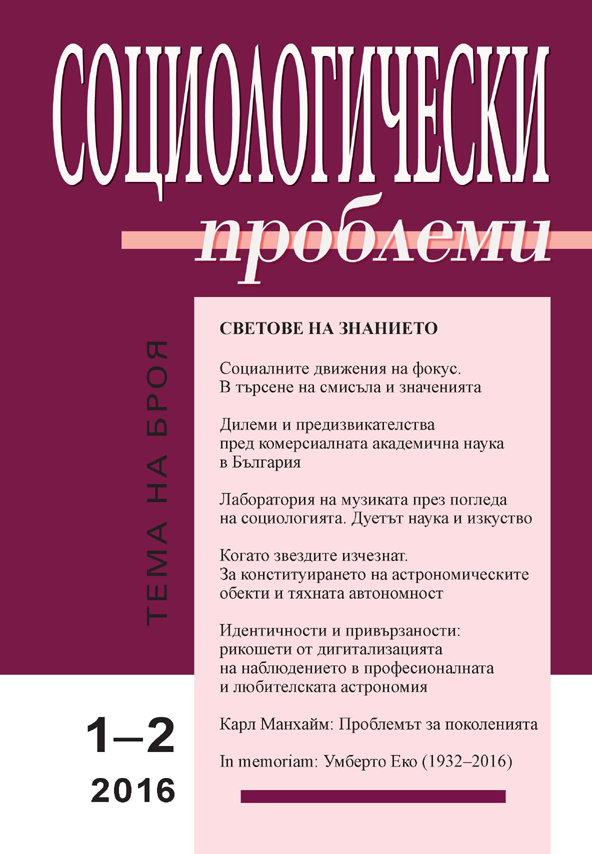
We kindly inform you that, as long as the subject affiliation of our 300.000+ articles is in progress, you might get unsufficient or no results on your third level or second level search. In this case, please broaden your search criteria.

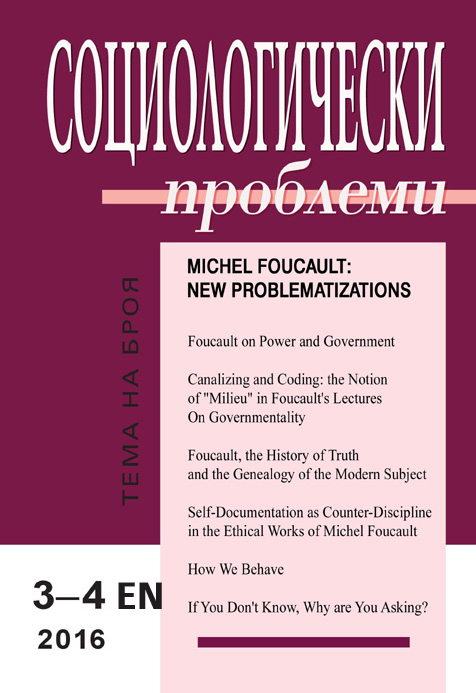
This article seeks to analyze the significance and the dimensions of the notion of “milieu” in Foucault’s lectures on governmentality at the Collège de France. After reconstructing Foucault’s brief genealogy of the term, I will put forward two arguments. First, I will show that the “milieu” constitutes a strategic element in the emergence of a liberal governmentality in the 18th century. Secondly, I will argue that mobilizing the “milieu” not only enables the government of humans but also makes possible a “government of things” (Foucault) that addresses complexes or assemblages of humans and non-humans.
More...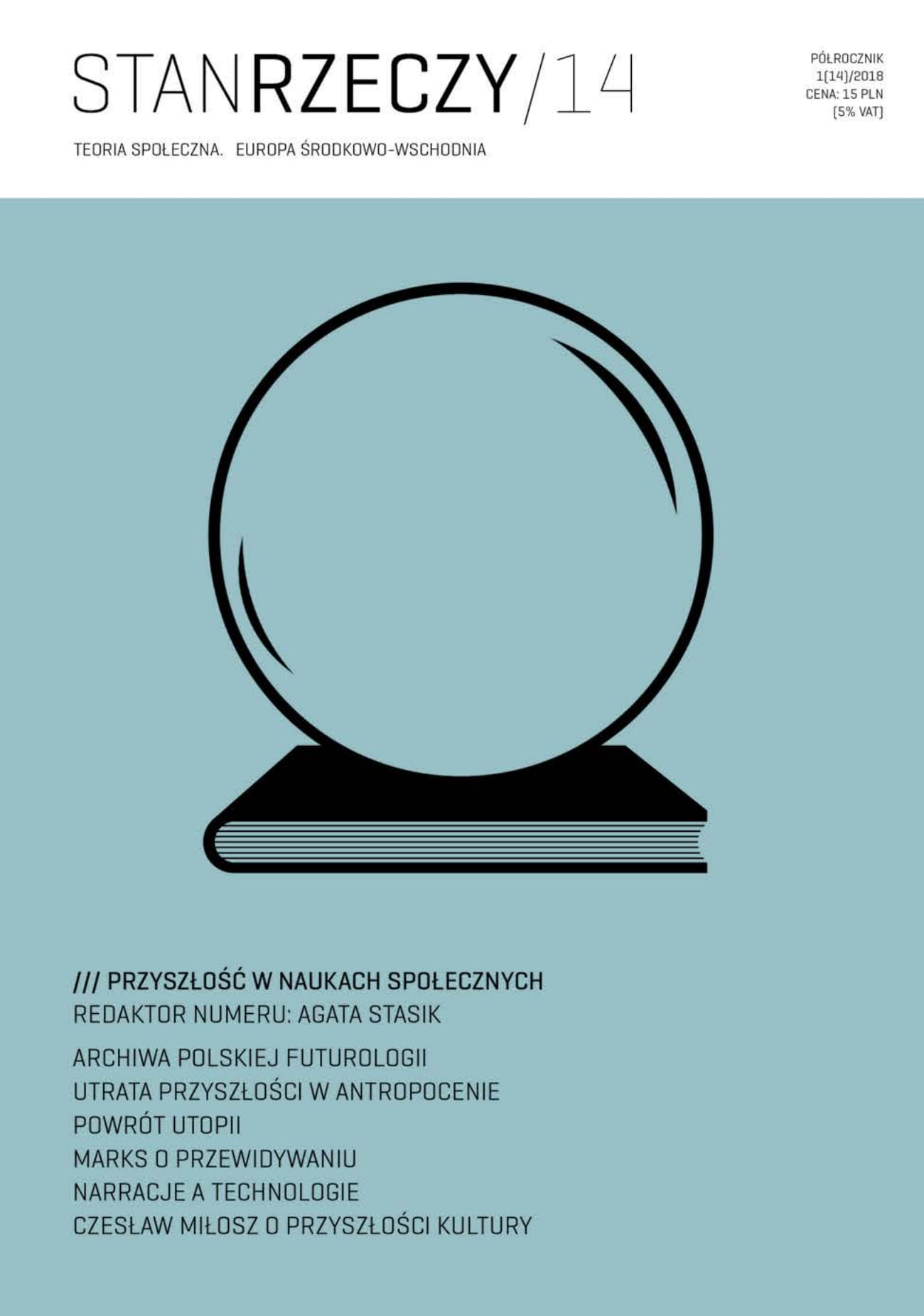
This article draws attention to the role of sociological forecasting under state socialism. It analyses four conceptualizations of the future developed in the Polish People’s Republic in the 1970s. These ideas are contextualised by transnational discourses on futurology, the constraints of science under the monocentric system of decision-making and ideological discourse officially confined to the Marxist theory of progress. These boundaries limited past prognoses. However, reflections on their function, prospective techniques and future orientation – which are exposed in futurological texts by Jan Szczepański, Stefan Nowak, Waldemar Rolbiecki and Andrzej Siciński – reveal a rethinking of modern concepts of history and temporality pointing far beyond the historical state socialist regime towards current redefinitions of temporal orders by the anthropocene and emerging research agendas such as historical future research, and the sociology of expectations.
More...
This article aims at describing the emergence of pop-science and its success both in popular culture and the academy. The key term, an English abbreviation of “popular science”, is understood here as a tendency of some academic authors to posit a daring claim with full conviction of its validity despite its obvious methodological faults. The recurring theme of revolutions serves as a prism through which the pop-scientific attitude towards sociological tradition is presented. The critical analysis of works of Steven Pinker and Yuval Noah Harari and the collation of common critical arguments lead to extracting a set of constituents for the pop-scientific reasoning. The contextualisation of these elements allows exposing the sources and possible dangers of legitimising pop-science.
More...
Many share a conviction, that Marxism was a discourse that elevated futurological hubris to its extremes and its failure. Yet, do we know well, what is the actual centre of Marx’ futurological endeavour, what is the actual status of ‘future’ in his works and what do we read about when we find predictions in his works? This article is an attempt at systematic reflection upon the status of future, that in fact for Marx is not an ‘utopian assumption’, but rather is systematic elaboration of what can be read from the ‘here and now’ of capitalistic development. An important context of analysis would be the question, which one of the futures Marx thinks is possible to predict? Are the dynamics of political changes possible do predict in the same way, as the effects of general structural relationships? First part of the paper is an overview of critical conceptual tools, that in Marx’ works bring together the analysis of the present, of its historical genesis and of future necessary workings of social forms. In the second part there is an example of analysis, that for Marx was a prediction, extracted from interpretation of structural relationships, but in our times can be treated as an actual description of present social reality.
More...
In this paper I analyse the transformations that have taken place within utopian thinking since the beginning of the century. I claim that the idea of “the death of utopia” – which was widely discussed at the end of the 20th century – may be considered right in one of its forms only. This particular one is characterized by a will to create a model of an unchangeable, perfect, universal world where the disciplinary mechanism would play a crucial role. In contrast to such ideas some other visions of the future have been developing dynamically in recent years. Three types of such visions – as far as I am concerned the most important ones – are presented in this paper. The first group are iconoclastic utopias that authors withdraw from delineating detailed plans for the future in favor of both emphasising a need to transcend the existing reality and indicating the main directions of the changes. The second group are the “Dyonisian” utopias that are oriented towards the individual needs and are characterized by permanent changeability. The third group are retrospective utopias in which the historical events are the point of reference for creating the visions of better future. I argue that utopian thinking is not only developing these days, but that we are witnessing its reneissance and far-reaching evolution.
More...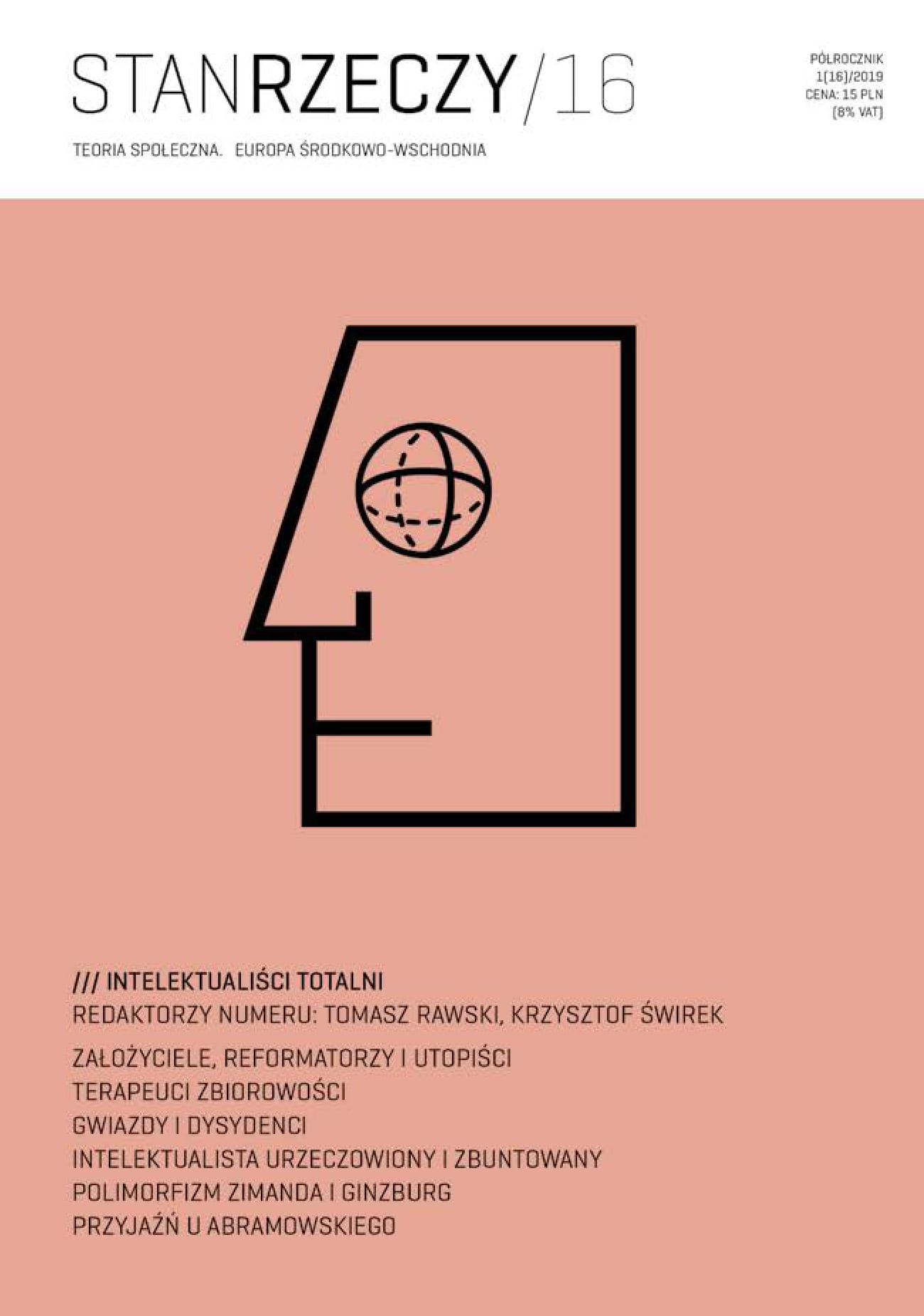

This paper proposes a return to notions of reification and fetishism as classic but still valid tools of critical social theory. In the broad frame of analysis of modernity, these notions pointed to processes of inversion in which means were substituted for aims, and objectivistic measures were reduced to disproportionate qualities. In this text, several concepts are juxtaposed: both those that can be understood as sources for theories of fetishism and reification, and their classic and more contemporary expositions in the works of Marx, Lukács, and Debord. The author applies the notions of reification and fetishism to intellectual work, which plays a simultaneously central and subordinate role in contemporary capitalism. In the final part of the text he proposes the notion of a total intellectual: the term is meant to describe someone who objects to the reification of intellectual work and its reduction to technical and economic activity.
More...
The aim of this article is to examine the role of intellectual production and intellectuals in the construction of modern society. The new society, as understood by Hegel, is the fulfillment of the idea of recognition, in which the individual and his attributes exist in so far as they are recognised by other individuals. The same applies to all other social phenomena – their objectivity comes from recognition. This leads to the belief that modern society is founded on knowledge and that social objectivity must be a “known” objectivity. Nevertheless, there are social processes and laws which, even though they remain valid, are not “known” by everyone, because modern society is based on a kind of division of knowledge which corresponds to some extent to the social division of labour. Intellectuals in this scheme have the Lacanian function of a supposed subject of knowledge. Only apparently does this make them dependent on the obligations of the social bond, for which they are a materially privileged class. In fact, the obligation can only be fulfilled if it is betrayed by unconventional academic practices.
More...
In this article the author considers the differences between Foucault and Deleuze in defining the role of a philosopher as a public intellectual. The context for the analysis is the specific position of a philosopher in the academic field – between the university, where career advances may be curtailed, and the obligation to act publicly as an intellectual. The text focuses on perceptions of who a philosopher is as a “thinker” and as an “engaged intellectual” and on how these perceptions harmonized with tensions and transformations in the discipline in the twentieth century.
More...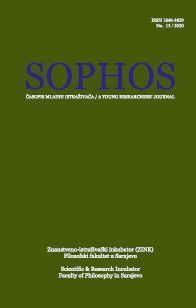
In this paper I emphasize the problem of ontological (in)security in the context of contemporary world events related to the sudden expansion of COVID-19 virus. The emphasis is on the tradition of the reflexive sociology and the concept of methodological pluralism. The question of ontological (in)security is analyzed form three sociological optics: 1) Ulrich Bech’s thesis on “risk society”; 2. Anthony Giddinese's thesis on “radicalised consequences of modernity”; 3. Zygmunt Bauman’s theory of the “liquid modernity”. Paper indicates that all three sociological theories are treating ontological (in)security as central concept, and implies that there is necessary correlation between ontological insecurity and the question of the modernity and its character.
More...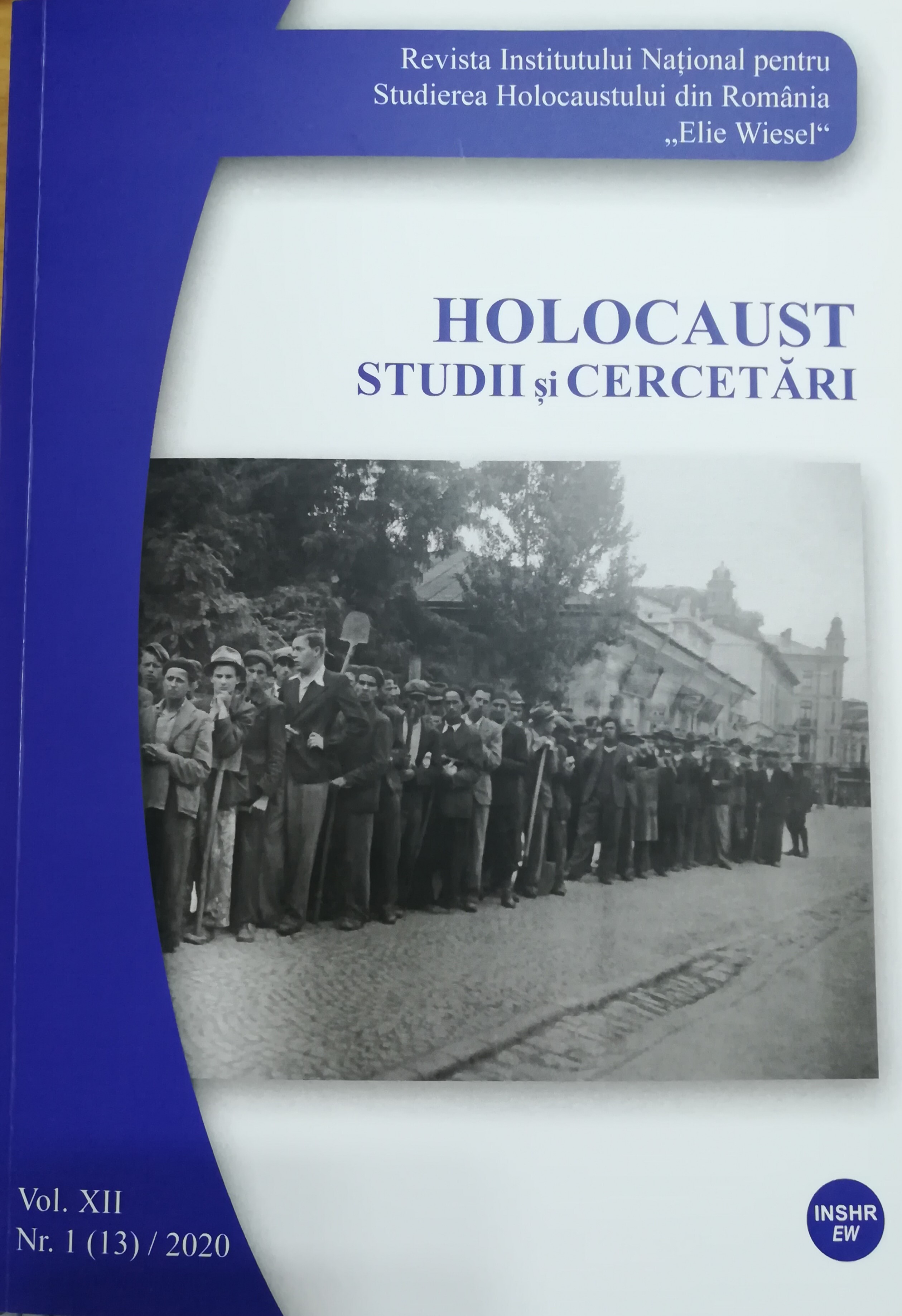
The paper discusses Ernest Bernea’s legionary past, focusing on its consequences and the post-war fate of the sociologist. I take into consideration his activity as a member of theLegionary Movement, his journalistic activity from the Rânduiala magazine, as well as the time he spent at the Ministry of Foreign Affairs, in the light of the communist authorities’ subsequent attitude, highlighting the post-war fate of the Gusti school’s member, which was profoundly marked by this legionary drift. The main resources used in the paper are the documents from the CNSAS Archive.
More...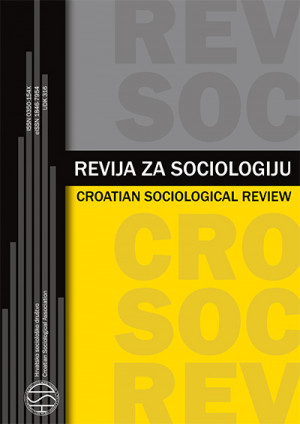
The main subject of this discussion is relation between modernity and classical sociology. In this article is shown that sociology, as a specific science, is an answer to social crisis of modern society. Industrialization and political revolutions are two main forces responsible for constitution of modern society. Here is emphasized importance of social context in which sociological thought was born. In this article the authors also shows that sociology is founded under the influence of two contrary lines of thought. Although Enlightenment had significant impact on classical sociology, for early sociologists ideology of conservatism was the main source of ideas. Influence of these two contradictory perspectives is the main reason for ambiguity of classical sociological theories. In other words, classical sociology has a critical approach to different aspects of modern society, but, at the same time, this criticism does not mean rejection of modern society as a whole. Classical sociologists thought that the course of social process could not be changed. Thus the restoration of former social structures is neither possible nor desirable at all. Duality of traditional and modern values is a universal characteristic of all classical sociological theories. How this duality is expressed in the works of Comte, Spencer, Durkheim, Tönnies and Weber is examined further in the article. At the end the author places an emphasis on the relevance of classical sociology today.
More...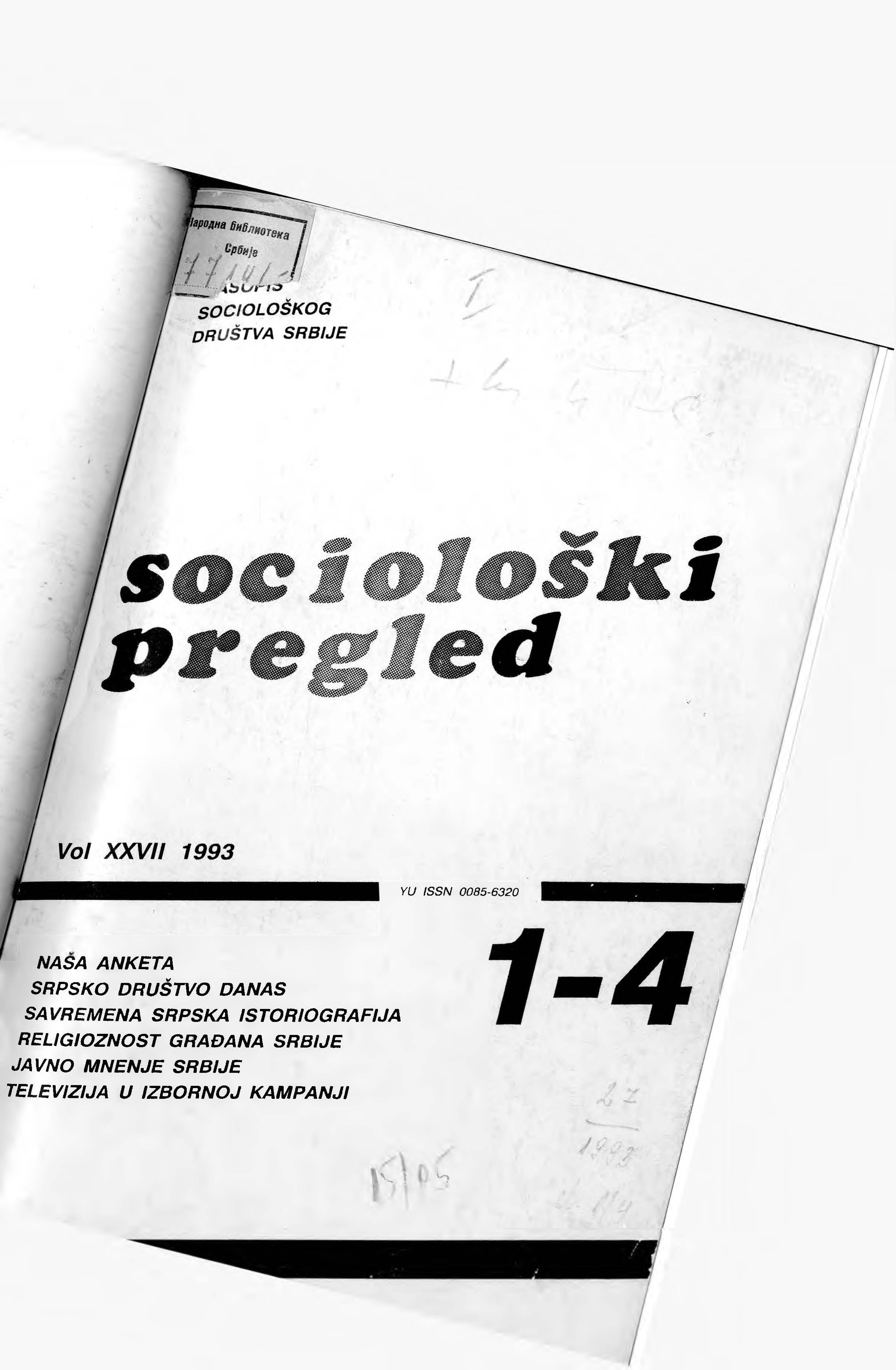
Historiographic studies of science are rather undeveloped in Serbia, much more than e.g. the historiography of philosophy, literature and arts. Historiography of science does not exist as a specialty, and science, especially the natural and technological ones are rarely and superficiallytreated in works both on general and national history. A conspicuous provincialism is one of the traits of Serbian historiography in general. However, in to three works on the European history since the Renaissance science and technology are included. (See Note 5 and 18.) Professional Serbian historiographers are insufficiently interested in the history of rational science too, particularly before the 19th century. Yet, this gap is partially filled by the amateurs especially in the field of medicine and public health. In a section are bibliometricaly analyzed the works published abroad by two groups of eminent Serbian natural and social scientists who have started to publish before WWI, the data on citation of their opus in the corresponding ISI indexes, as well as their presence in the most influential encyclopedias. Several controversies and conflicts within the Serbian science organization before WWI, involving as a rule political science issues, are briefly discussed. The paper ends with a few suggestions concerning the possible advancement of historical studies of science in Serbia.
More...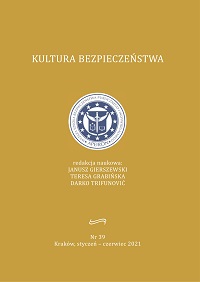
The article reminds Stanisław Ossowski, an outstanding sociologist and political scientist, a representative of the Lviv-Warsaw school, and a brave soldier. The author focuses her attention on two problems selected from his work: on man as an ethical subject and on opportunities and threats in shaping individual and collective social personalities. Stanisław Ossowski regarded disobedience in thinking, faithfulness to the truth, and intellectual honesty as the professional duty of a scientist, especially a humanist, who studies ideas and value systems. He justified the theory of mutual conditioning of the social structure-personality. He studied the impact of decisions of senior government officials on the dynamics of human behaviour and the development of human polymorphism.
More...
Social competence is defined as "the characteristic of people capable of producing a desirable social influence on others" (Marcus S., 1999), a type of behaviour leading to social performance (Chelcea, 2013)", an empathic aptitude and the ability to develop social relationships. The following explanatory paradigm has been considered: the formation and development of social competences are conditioned by a series of intentional factors specific to each person (personality, capacity, social skills) and external factors specific to the external environment (group sentiment, group social processes).
More...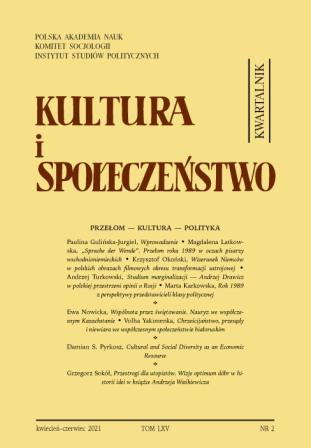
In this essay the author reflects on a monograph by Krzysztof Łęcki, Według Tukidydesa. Rozważania socjologa literatury nad ‘Wojną peloponeską’ [According to Thucydides: Reflections on the Sociological Literature about The Peloponnesian War] (2019), and seeks themes in it that extend beyond the sociology of literature. He concludes that Łęcki’s analysis convincingly adds to the body of knowledge on Thucydides’s text in philosophy and the sociology of politics. The book touches on many themes relevant to historical sociology or the sociological (and politological) understanding of rules governing the mechanisms of politics and international relations.
More...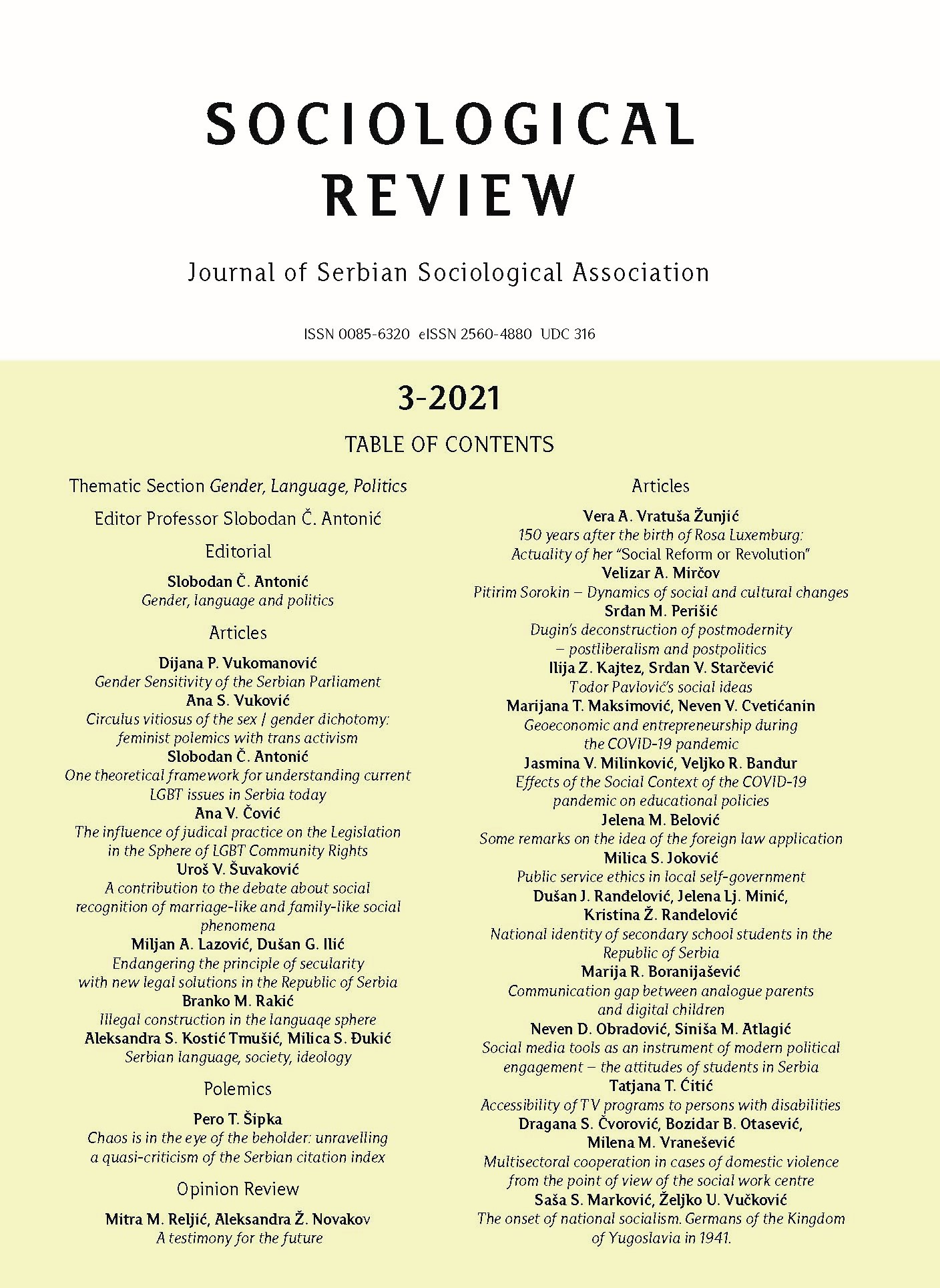
The paper examines the actuality of Rosa Luxemburg’s Reform or revolution 150 years after her birth. The main method used is the content analysis of this important polemical pamphlet placed in the context of the time/space, i.e. when and where it was written, on the one hand, and today, on the other. The main finding is that Rosa’s work has remained relevant to our days since the capitalist mode of production is still characterized by internal contradictions producing barbaric consequences of exploitation and imperialist wars. These capitalist system’s consequences ensure the permanent actuality of the dilemma between socialism and barbarism confronted by Rosa Luxemburg throughout her life.
More...
The paper gives a review and a critical overview of the theoretical approach to the dynamics of cultural and social changes of renowned sociologist Pitirim Sorokin. The first part of the paper is dedicated to the description of the most relevant theoretical contributions contained in Sorokin’s most important book Social and Cultural Dynamics. In the second part of the paper, there is a critical overview by the author of this text of Sorokin’s sociocultural dynamics theory, as well as of other authors who have studied Sorokin’s approach. The conclusion of this paper is that Sorokin’s approach is a very significant theoretical contribution to sociology, but also that his theory does not dedicate sufficient attention to external factors as the causes of sociocultural dynamics.
More...
The Fourth industrial revolution, called digital, is associated with a radical transformation of society (digital society emerges) and a social reality that is twofold: offline and online social reality. The digitalization of social life is deterritorialization, which poses in a fundamentally new way the classical problem of sociology, “How is social order possible?” Unlike natural science, whose subject is a-historical, the subject of sociology (society) is historically determined, and for this reason with each historical turn a new sociology emerges, which, however, does not make the previous one meaningless. Digital sociology as new is not a negation of “old” sociology, just as quantum physics is not a negation of Newtonian physics. Digital sociology seeks its place in post-non-classical science and faces serious challenges related to the place of man in a social world inhabited by intelligent machines or non-humans as social agents.
More...